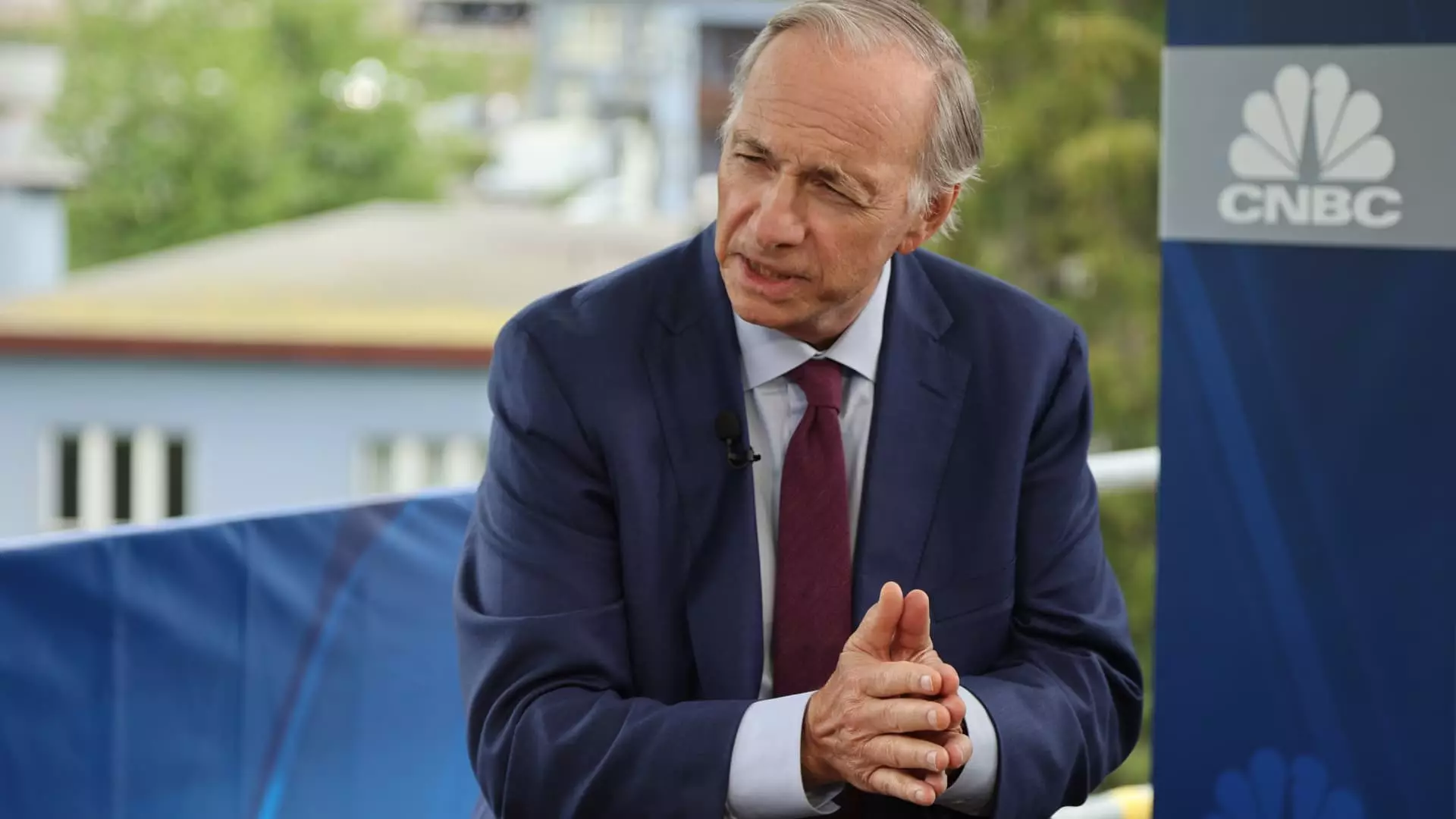Ray Dalio, the influential founder of Bridgewater Associates, has characterized the 2024 U.S. elections as a pivotal moment in American history, underscoring its potential ramifications for the nation’s future. This assertion is particularly resonant in light of the current political landscape, which is characterized by deep-seated polarization. Dalio’s commentary on CNBC’s “Squawk Box Asia” reveals his concern about the fundamental disunity within the nation; he believes that these irreconcilable differences between Democrats and Republicans could jeopardize the very fabric of American democracy.
Dalio’s claims invite us to critically evaluate the implications of failing to provide a peaceful transfer of power. The unsettling possibility that election results may not be universally accepted paints a grim picture of the current state of affairs. In a democracy that has long prided itself on its orderly processes, the threat of disorder looms larger than ever. Consequently, it is imperative for voters to recognize the importance of this election and its potential to shape not just domestic policy but also international relations and economic stability.
A central theme in Dalio’s analysis is the pressing need for a “strong leader of the middle.” He advocates for moderates to step up, suggesting that reconciliation and cooperation between the two major parties could lay the groundwork for critical reforms. This call to action is particularly relevant in a time when the nation grapples with issues that transcend partisan divides, such as the rising cost of living and rampant inflation—concerns that resonate with a broad demographic.
The idea of a “win-at-all-cost” mentality, as described by Dalio, hinders collaboration and fuels divisiveness. This mentality breeds a reluctance to compromise, which is detrimental to democracy and governance. With critical issues such as immigration and climate change at stake, the urgency for leaders who can navigate these complexities while prioritizing the common good cannot be overstated.
Dalio emphasizes the necessity for “broad-based prosperity” as a foundational goal for the United States. This vision, he argues, is not merely about economic metrics but encompasses equity, opportunity, and social stability. Drawing a parallel with Singapore—a nation often celebrated for its efficient public services and educational framework—he illustrates how prioritization of inclusivity can yield positive outcomes for society at large.
While Dalio acknowledges the innovations fostered by top universities in the U.S., he remains critical of the fact that these advancements largely benefit a select few. A society that thrives is one where prosperity is shared broadly, sustaining both order and opportunity for all citizens. This perspective underlines the critical need for reforms that bridge existing gaps and ensure that progress does not leave significant portions of the population behind.
Dalio’s insights into the upcoming elections serve as a clarion call for Americans to reflect on the importance of unity, compromise, and equitable prosperity. As the political climate grows increasingly fraught, the importance of moderates rising to the occasion is paramount. With the potential for significant political and economic upheaval at stake, the 2024 elections might indeed serve as a watershed moment. Citizens must critically engage with these dynamics to ensure a future characterized not only by stability but also by growth that benefits everyone.


Leave a Reply